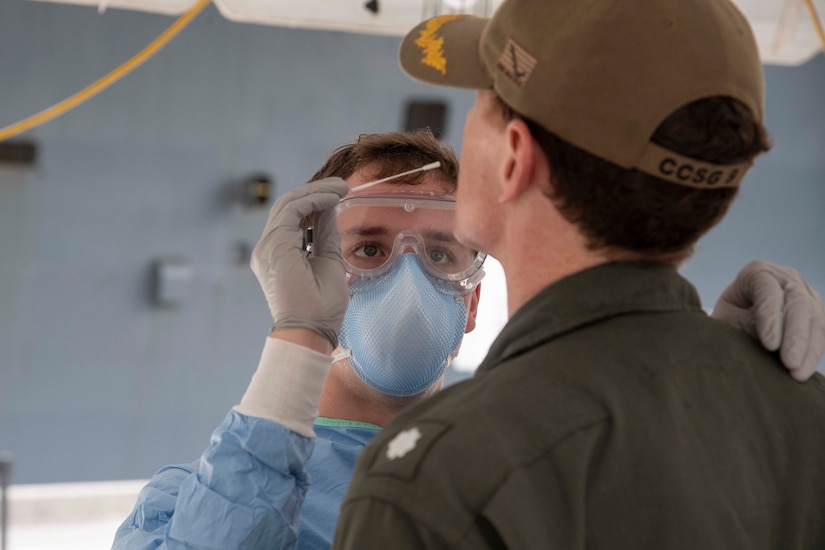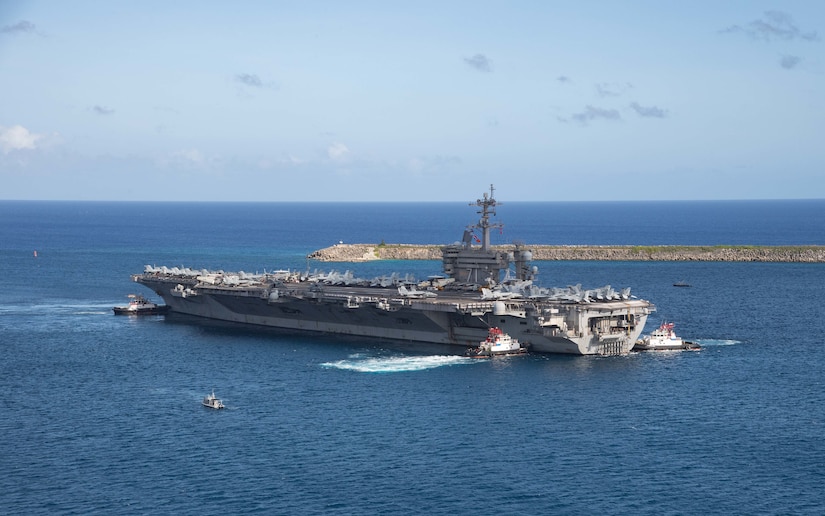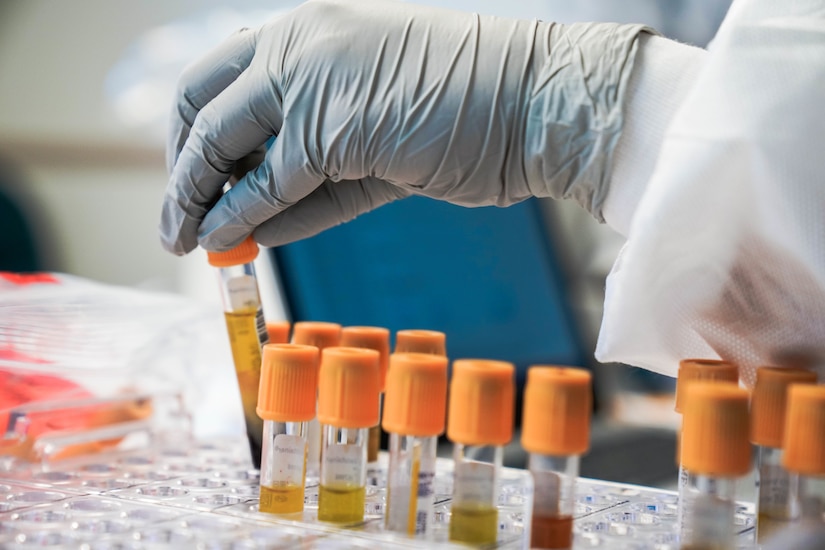A multidisciplinary team of U.S. Navy Medicine personnel published a comprehensive analysis of the USS Theodore Roosevelt COVID-19 (or SARS-CoV-2 as it was also known at the time) outbreak of spring 2020 in the New England Journal of Medicine on Nov. 11, 2020.

While preliminary findings and a Centers for Disease Control and Prevention Morbidity and Mortality Weekly Report were released in June from a limited population, this paper provides an epidemiological description of the outbreak that includes all of the crew.
The paper contributes to the growing body of knowledge on the behavior of the new coronavirus and will support continued efforts to stem the impact of the virus in the Navy, in the United States and around the world.

Over the course of the outbreak, 1,271 sailors (27% of the crew) tested positive for severe acute respiratory syndrome coronavirus 2 (SARS-CoV-2) by rRT-PCR testing. The authors found that working in confined spaces, enlisted rank, history of angiotensin converting enzyme inhibitor use, respiratory disease, and obese body mass index were associated with an increased risk of infection.
In their conclusions, the authors noted SARS-CoV-2 spread quickly among the Roosevelt's crew. Transmission was facilitated by close quarters and asymptomatic and pre-symptomatically infected crew members. Nearly half of those who tested positive for the virus never developed symptoms. These findings show that young, healthy working-age adults can play a role in the spread of SARS-CoV-2.

"We must continue to be aggressive about studying COVID-19 and SARS-CoV-2," said co-author of the paper, Navy Lt. Cmdr. Matthew Kasper. ''It's about keeping our operational forces ready and underway, protecting the health of our personnel, while contributing to the general body of knowledge of this virus.''
(Read the New England Journal of Medicine article here.)
(Navy courtesy story from the U.S. Navy Bureau of Medicine and Surgery.)






No comments:
Post a Comment